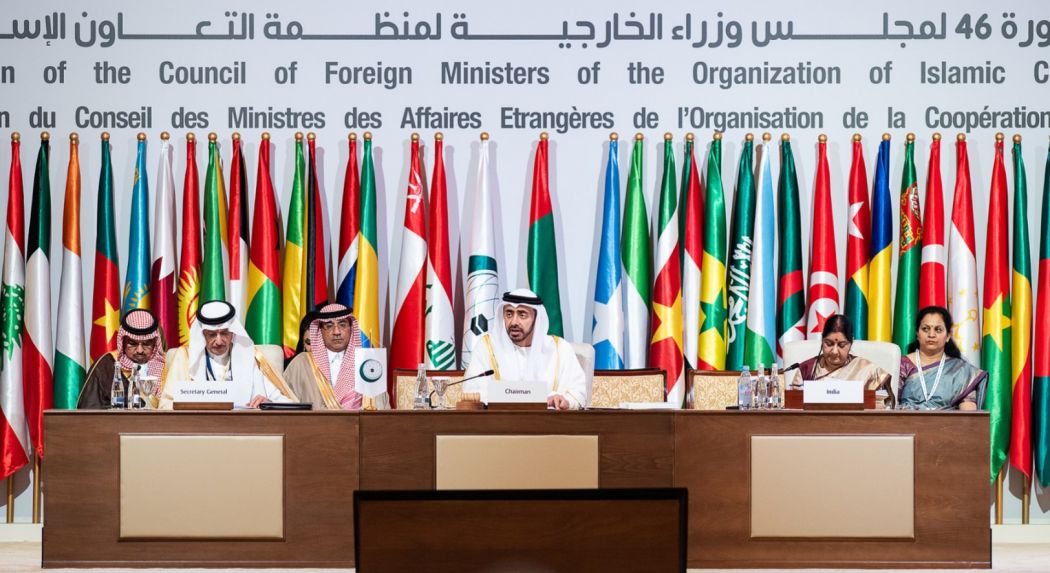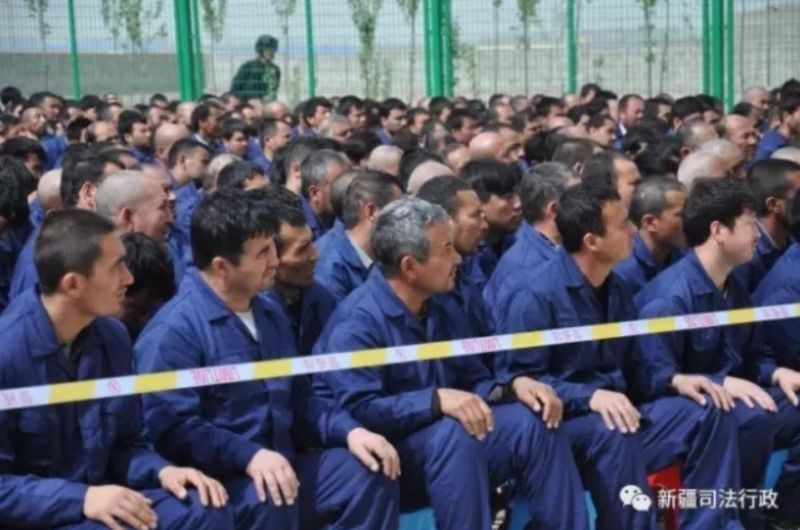One of the largest inter-governmental bodies in the world has endorsed China’s treatment of its Muslim citizens, just as the country is facing growing scrutiny for its policies targeting Uighurs in Xinjiang.
The Council of Foreign Ministers under the Organisation of Islamic Cooperation (OIC) held a meeting in Abu Dhabi on March 1 and 2. It adopted a resolution on “safeguarding the rights of Muslim communities and minorities in non-OIC member states,” which included a positive reference to China.

The predominantly Muslim Uighur ethnic group are among the minorities targetted in what Beijing claims is a campaign to tackle unrest and separatism. The UN says a million Uighurs have been arbitrarily detained in extralegal “political reeducation camps,” whilst Human Rights Watch reports that surveillance and repression in Xinjiang has increased dramatically since 2016. The NGO says that biometric data is collected from residents, passports are confiscated, religious activity restricted, “abnormally long” beards, public prayers and Muslim veils are banned, whilst vehicle and mobile phone owners are made to install trackers.
The Council “welcomes the outcomes of the visit conducted by the General Secretariat’s delegation upon invitation from the People’s Republic of China; commends the efforts of the People’s Republic of China in providing care to its Muslim citizens; and looks forward to further cooperation between the OIC and the People’s Republic of China,” the resolution read.
The OIC has 57 member states, and aims to provide “the collective voice of the Muslim world.” Its Council of Foreign Ministers meet yearly and oversee the implementation of OIC’s general policies, with its Abu Dhabi meeting being its 46th session.
The World Uyghur Congress said it was “extremely disappointing” that the OIC failed to raise the issue the mass detention of Uighurs.
Extremely disappointing that @OIC_OCI again failed to raise the mass arbitrary detention of millions of #Uyghurs in internment camps at #HRC40. Instead standing up for millions of Uyghur Muslims being persecuted for their religion & ethnicity, the OIC commended #China‘s efforts. https://t.co/kgva3bkuz8
— WorldUyghurCongress (@UyghurCongress) March 13, 2019
Patrick Poon, a researcher at NGO Amnesty International, also called the resolution disappointing.
“I think we all need to ask the OIC members if they believe that the camps are really for ‘vocational training’ while so many Uighurs and Kazakhs and other Muslims living overseas are complaining losing contact with their relatives in Xinjiang?” Poon told HKFP.
“Are they suggesting that they support the mass detention of their Muslim brothers and sisters in China? If so, it’s really alarming and ironic to see how the Muslim countries are turning a blind eye to the fate of their brothers and sisters in China and indirectly encouraging China to crackdown on Islamism in China,” he added.
What a blow for #Uyghurs, humans: @OIC_OCI “commends the efforts of [#China] in providing care to its Muslim citizens.” Really: cheering mass arbitrary detention? Shameful. https://t.co/rgWHRVdURu @hrw @hrw_chinese @OIC_IPHRC
— Sophie Richardson (@SophieHRW) March 12, 2019
Last month, Turkey became the first Muslim nation to publicly criticise China over its policies in Xinjiang. The Turkish foreign ministry spokesperson said: “The systematic assimilation policy of Chinese authorities towards Uighur Turks is a great embarrassment for humanity.”

The country also called on the international community and UN Secretary-General Antonio Guterres “to take effective steps to end the human tragedy in Xinjiang region.”
